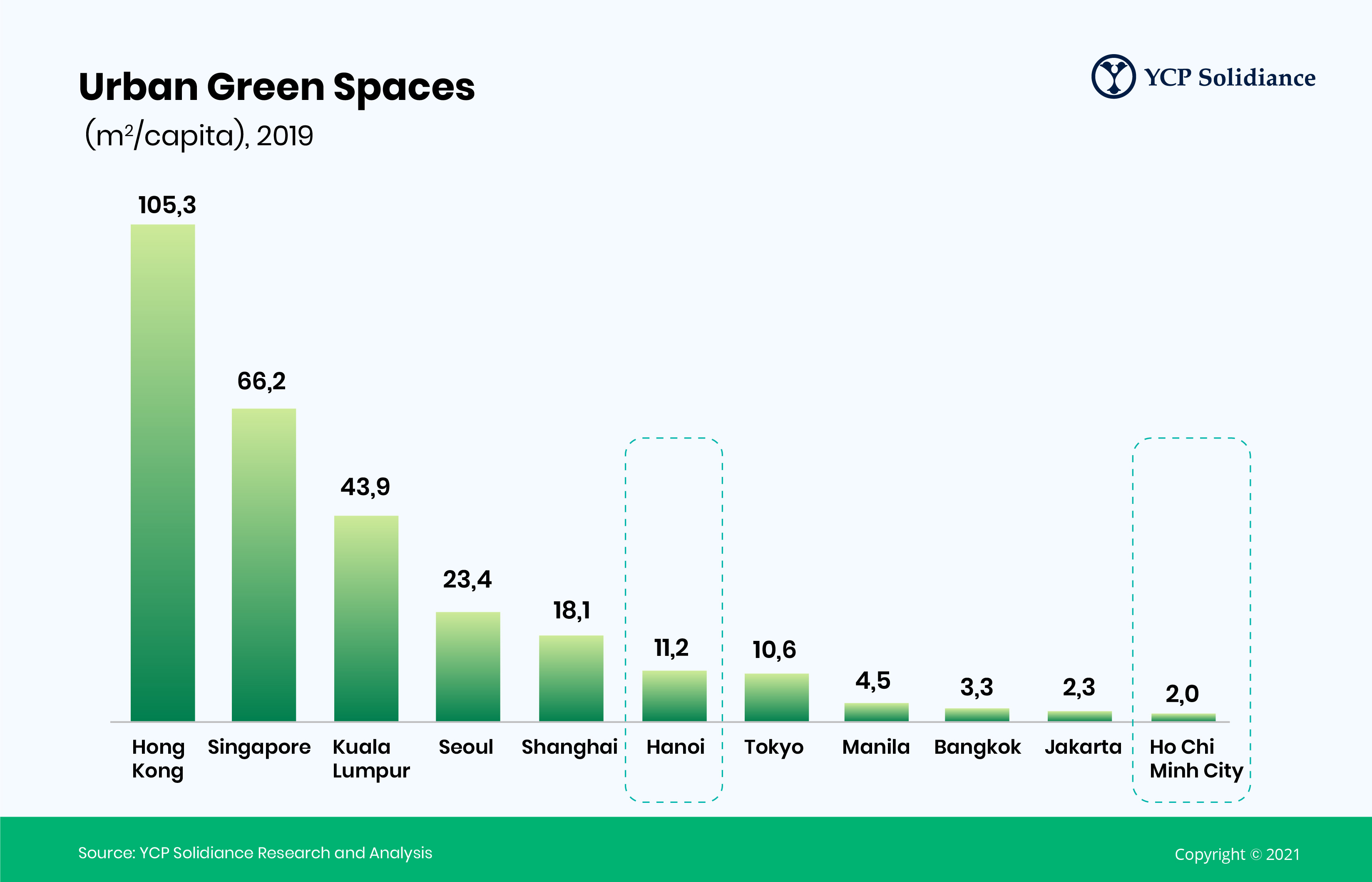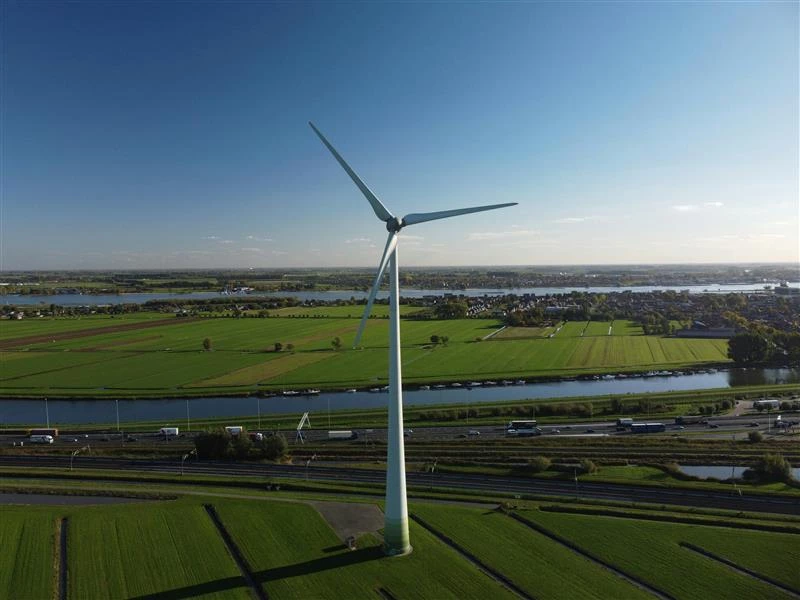With the recently concluded Smart City Asia Summit 2022, all eyes are on Vietnam’s smart cities development, especially with more consumers and investors becoming more aware of the importance of sustainable and smart urban spaces. Currently, several areas in Vietnam are developing their own smart city roadmaps, taking into account the specific infrastructure and quality of life needs of their citizens.
The YCP Solidiance white paper Public and Private Sector Cooperation: Sustainable Urban Development in Vietnam offers three case studies of emerging smart cities in the country, each highlighting the unique needs of its people. To read more reports like this, subscribe to our newsletter here.
Smart city infrastructure is currently being piloted in Vietnam, and the ongoing COVID-19 pandemic has sped up the adoption of certain digital and electronic services in some ministries and offices of the government.
The development of smart cities has been prioritized across Vietnam in key municipalities since 2018, with Ho Chi Minh City, Hanoi, Da Nang, and Can Tho at the forefront of forming smart city frameworks and undergoing gradual digital transformation of city and government services. 
City Government Level Smart City: Ho Chi Minh City Command Centre
Ho Chi Minh City has mapped out four priority tasks towards becoming a smart city by 2025, inclusive of a shared database, a simulation research and forecasting center for socioeconomic policies, a smart administration center, and an information security center:
- The Ho Chi Minh City People’s Committee approved a plan to build a Smart Urban Operation Center with a total investment of VND 30 billion (USD $1.4 million) in 2019. On 25 August 2020, the Ho Chi Minh City Department of Information and Communications signed an agreement with the US Trade and Development Agency (USTDA) to provide technical assistance in building the center with aid from US-based Winbourne Consulting. Under this agreement, the USTDA will provide USD $1.2 million with some additional funds coming directly from Winbourne. The operation center, to be based at the Ho Chi Minh City People’s Committee office, will manage and monitor camera systems and develop a database in Districts 1, 5, 12 and Phu Nhuan in Phase 1.
- Ho Chi Minh City has also established a Simulation Division (under the simulation research and forecasting center) at the Ho Chi Minh City Institute for Development Studies in order to study and model traffic patterns and better manage vehicular traffic. There are also plans to build two other centers: an Intelligent Operations Center and a Socioeconomic Simulation and Forecast Center.
- The Ho Chi Minh City government is encouraging companies to use the open data ecosystems to create new software and systems which would give easier access to start-ups and other companies looking to participate in the new smart economy. Ho Chi Minh City authorities have piloted an open data portal providing information on medical examinations and treatment facilities as well as medical practice certificates for the city (http://data.hochiminhcity.gov.vn). The long-term objective for the portal is to centralize data from many other areas and to provide useful information on health, transport, investment, environment, and climate for citizens and businesses to look up, use, share and develop for any purpose without any fees.
District-Level Smart City: Saigon Sport City
Saigon Sports City is a 64-hectare township that Keppel Land is developing in the prime location of District 2 in Ho Chi Minh City, in collaboration with Keppel Urban Solutions. This township is now under construction and expected to be fully completed in 2027.
Essential services for this integrated township include smart security management, smart mobility, and environmental infrastructure solutions for 4,300 premium homes, as well as other iconic features: a waterfront boulevard, an open public plaza, and Vietnam’s first one-stop lifestyle hub with comprehensive facilities for sports, entertainment, shopping, and dining.
District-Level Eco Smart City: Thu Thiem Lotte Eco Smart City
The 7.4-hectare site will incorporate a shopping mall, offices, hotels, serviced residences, and apartments. This township project is expected to be fully in the handover phase from 2024 onwards. This smart city project will improve people’s living standards by providing them with access to the following, powered by innovations such the Internet of Things (IoT), open platforms, cloud computing, and a desire for environmental friendliness:
- Green Energy Technology (economizing fossil energy, energy recirculation in industrial production, reduced emissions, solar energy, wind energy, nuclear energy, tidal energy and the systems of smart power grids, etc.);
- Material technology and construction (includes non-fired materials, wood substitute materials, processing of traditional materials using appropriate high technology, intelligent buildings, green buildings, etc.);
- Mechanical technology in transportation (engines using new, low emissions energy, intelligent transportation systems, etc.);
- Green chemical technology (production of synthetic plastics based on plant material which easily decompose, production from renewable raw materials, treatment of hazardous waste, producing little or no by-products and waste, production with little consumption of water and chemicals, etc.);
- Waste treatment technology (waste recycling, prevention and disposal of hazardous waste)
In terms of public and private sector collaboration, the government has previously relied heavily on domestic telecommunications firms, such as Viettel, VNPT, and FPT, to set up the foundation for e-government services. But, foreign partners, including Microsoft, IBM, and Siemens, have increasingly been able to participate as consultants and as technology partners in smart traffic, platform deployment, as well as other smart software infrastructure demonstrating the potential for the collaboration of the public and private sector, both domestic and foreign, in the development of more smart and sustainable cities in Vietnam.







